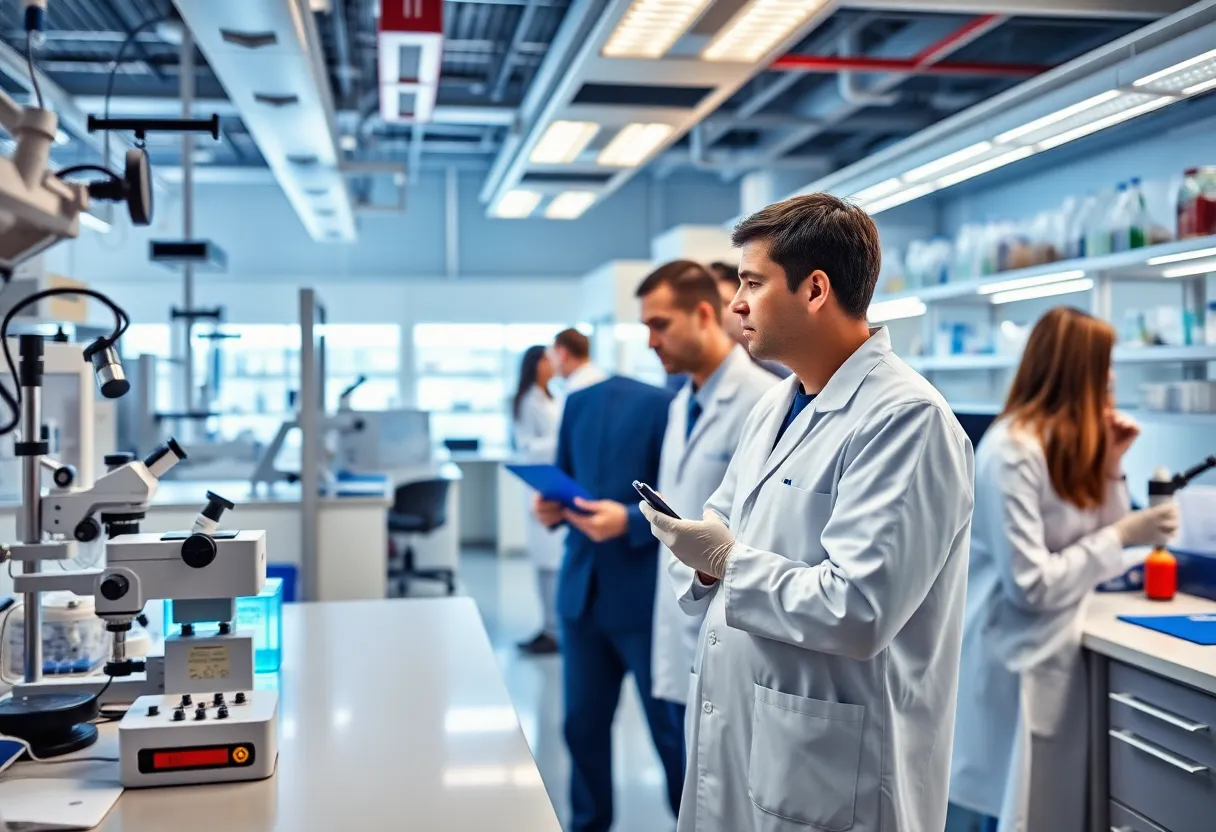News Summary
Georgia’s life sciences sector, home to nearly 4,000 companies, is at risk of losing its competitive edge as neighboring states increase investments. Despite its growth and significant contributions to the economy, challenges such as capital access and infrastructure needs persist. Meanwhile, new initiatives and investments are being launched to enhance Georgia’s position in regenerative medicine and other advanced medical fields.
Atlanta, GA – Georgia’s life sciences industry, comprising nearly 4,000 companies, is now facing potential competitive threats despite its recent growth and significant investments. The state ranks third in the Southeastern United States for life sciences based on the number of companies and economic impact. However, observers are raising alarms about Georgia’s ability to maintain its standing as neighboring states ramp up investments.
Georgia Bio, now known as Georgia Life Sciences, has been a strong advocate for pharmaceuticals, biotech startups, medical device companies, universities, and research institutes for the past 35 years. The organization stresses that the life sciences sector is crucial for the state’s overall economic growth, with the industry being one of the highest-paying and fastest-growing sectors in Georgia.
In recent years, the industry has benefited greatly from considerable corporate investment and strategic economic development initiatives. The state hosts major biopharma manufacturing players such as Takeda, Boehringer Ingelheim, and Johnson & Johnson. Collaborations between companies and institutions like Georgia Tech and Emory University further enhance Georgia’s capabilities in the medical device and diagnostics sectors.
There is also a strong emphasis on Georgia’s agricultural roots, which bolster the ‘agbio’ sector focused on precision agriculture and crop resilience. Observers believe there is substantial potential for Georgia to evolve into a hub for regenerative medicine and smart medical devices, driving further growth and innovation in the field.
Despite these strengths, challenges loom for Georgia’s life sciences sector. Access to capital remains a primary concern for startups, which are essential to the future vitality of the industry. Additionally, there is a pressing demand for wet-lab spaces, incubators, and biomanufacturing facilities to support these emerging companies.
As the life sciences landscape evolves, Georgia faces fierce competition from neighboring states that are making targeted investments to attract companies in the sector. Notably, Georgia is currently the only Southeast state lacking a Small Business Innovation Research (SBIR) and Small Business Technology Transfer (STTR) matching grants program, which could hinder its ability to attract and retain these burgeoning businesses.
On a national scale, proposed cuts to biomedical research funding from the National Institutes of Health (NIH) further threaten the progress of the industry. In response to these challenges, Georgia is taking significant steps to enhance its life sciences framework. A notable example is the $153 million investment aimed at establishing the Shriners Children’s Research Institute in Atlanta. This facility will focus on cell and gene therapies, robotics, artificial intelligence, and other advanced medical technologies and is expected to employ up to 470 people.
Furthermore, Georgia Tech and Emory University are transitioning seven research labs to the Science Square Labs, enhancing the local research infrastructure. Another ambitious initiative, the Rowen project, proposes creating an innovation district that could generate $1.65 billion in income by 2035 and lead to the creation of between 80,000 to 100,000 new jobs. This project aims to provide the necessary infrastructure for businesses focused on agriculture, medicine, and environmental solutions.
The state is also offering special tax credits for life science firms to stimulate growth, including the PPE tax credit and the Life Sciences Manufacturing Tax Credit. Recent significant projects include the expansion of RWDC and a new one million-square-foot facility for Medline in Bryan County. Investments in Georgia’s life sciences community reached nearly $300 million last year and created 350 new jobs within this vital sector.
Overall, the total employment within Georgia’s life sciences companies exceeds 68,000, highlighting the sector’s importance to the state’s economy. As Georgia navigates through these challenges, the future of its life sciences industry will depend on attracting continued investments and fostering an environment conducive to innovation and growth.
Deeper Dive: News & Info About This Topic
- Hypepotamus: Georgia Life Sciences Rebrand
- Bisnow: Shriners to Open $150M Pediatric Research Institute Near Georgia Tech
- Site Selection: New Tax Credits Help Attract Life Science Firms to Georgia
- AJC: Ossoff, Georgia Biomed Industry Slam Trump’s Cuts to Biomedical Research
- CBRE: Atlanta Ranks Among Nation’s Fastest Growing Life Science Labor Pools
- Wikipedia: Life Sciences
- Google Search: Life Sciences in Georgia
- Google Scholar: Georgia Life Sciences
- Encyclopedia Britannica: Life Science
- Google News: Georgia Life Sciences

Author: STAFF HERE AUGUSTA WRITER
The AUGUSTA STAFF WRITER represents the experienced team at HEREAugusta.com, your go-to source for actionable local news and information in Augusta, Richmond County, and beyond. Specializing in "news you can use," we cover essential topics like product reviews for personal and business needs, local business directories, politics, real estate trends, neighborhood insights, and state news affecting the area—with deep expertise drawn from years of dedicated reporting and strong community input, including local press releases and business updates. We deliver top reporting on high-value events such as Arts in the Heart Festival, Westobou Festival, and Masters Week. Our coverage extends to key organizations like the Augusta Metro Chamber of Commerce and Greater Augusta Arts Council, plus leading businesses in manufacturing and healthcare that power the local economy such as Textron Specialized Vehicles, Cardinal Health, and Nutrien. As part of the broader HERE network, including HEREAtlanta.com and HERESavannah.com, we provide comprehensive, credible insights into Georgia's dynamic landscape.


